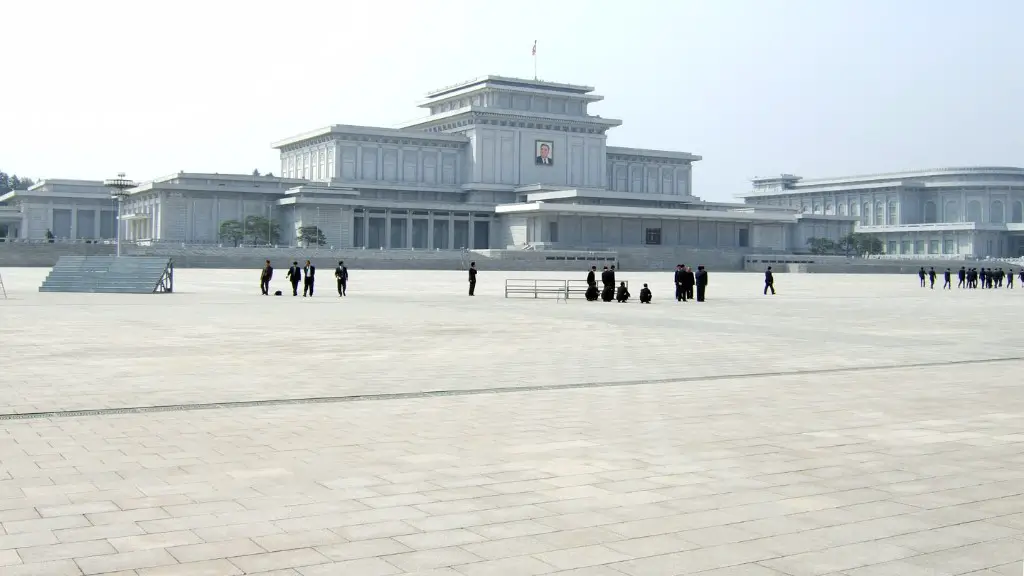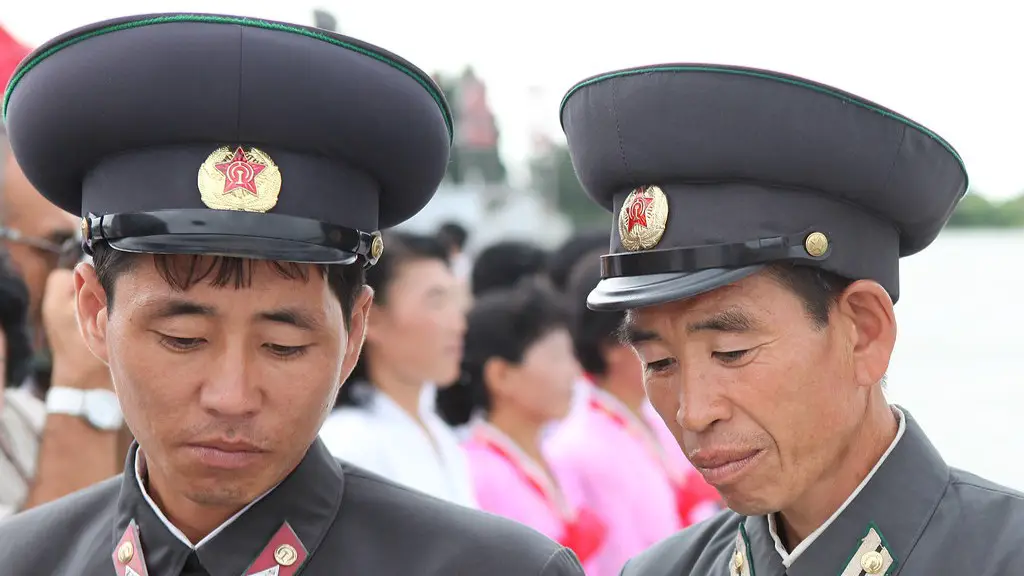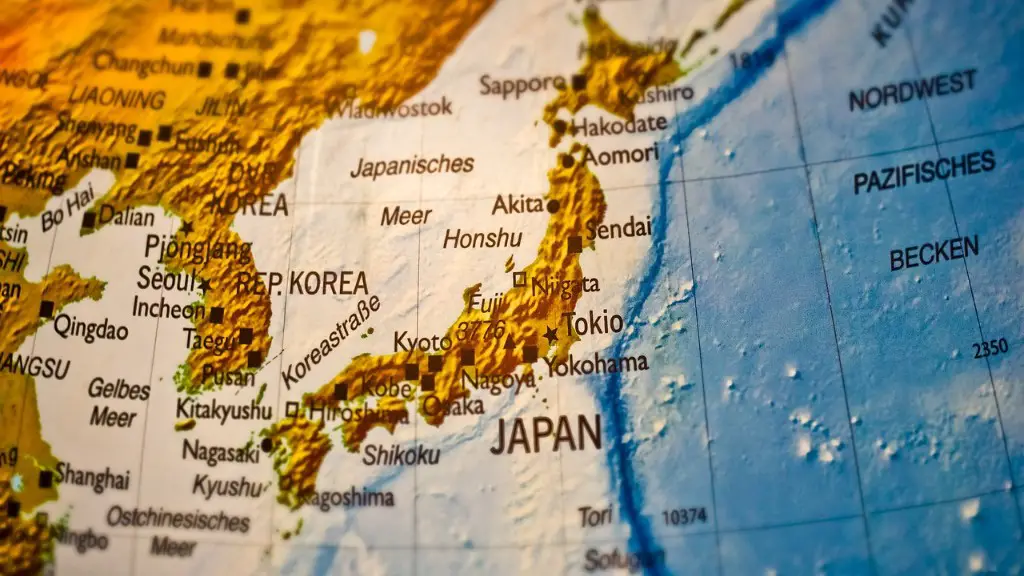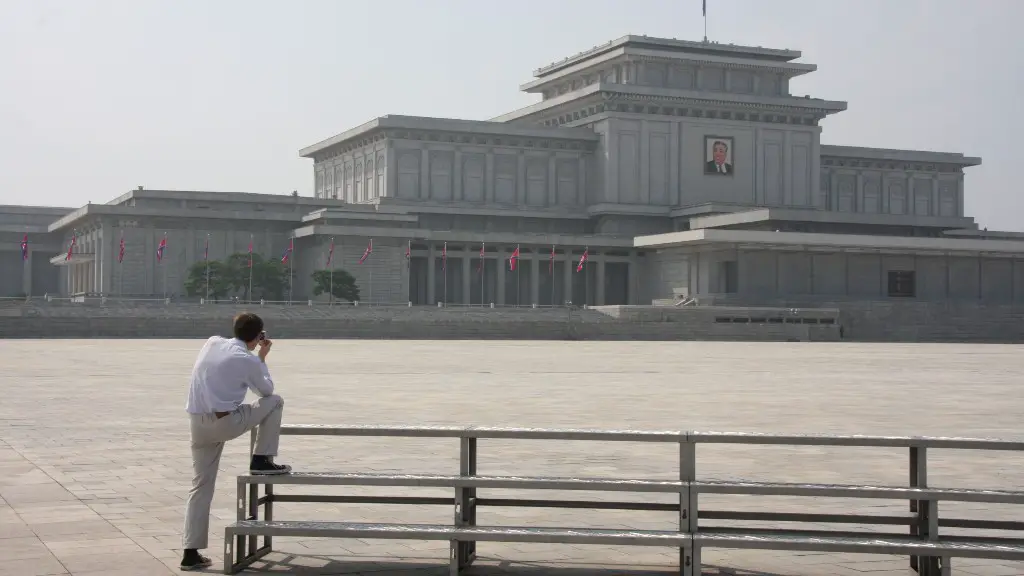The prospects of North Korea attacking Japan are rising to the forefront of international relations. What could have been considered a hypothetical or geopolitical fantasy even a few years ago is now seen as a very real possibility. The tension in the region is rising as North Korea continues to develop its nuclear developments, and Japan refuses to negotiate diplomatically.
North Korea and Japan have a centuries-long history of animosity stemming from Japan’s colonization of the Korean Peninsula in the early 1900s. Over the past centuries, North Korea and Japan have been locked in a stalemate characterized by mutual distrust and fear. In recent years, this conflict has been compounded by North Korea’s ambitions to organize its own nuclear program and subsequent military applications.
The concerns of a potential North Korean attack are based on evidence that North Korea has tested short-range ballistic missiles as recently as 2018. It is also believed that North Korea has the capacity to launch missiles up to 4,000 km, which could easily reach the Japanese islands. This means that North Korea could launch a preemptive strike on the Japanese homeland without provocation or warning. Experts also point to North Korea’s blatant disregard for international law and the United Nations’ sanctions as evidence of its unpredictability and ability to act first.
The Japanese government has responded to these threats by shifting towards a more militaristic stance. Japan has moved its military resources closer to the Korean Peninsula and has indicated that it will bolster its defenses against a North Korean missile attack in the event of an emergency. Japan has also expressed its commitment to joining forces with the United States and South Korea in order to mount a joint defense against any North Korean attack.
There are concerns among some experts that Japan is being overconfident in its ability to defend itself and that it could be underestimating the threat posed by North Korea. These experts point out that North Korea has not abandoned its nuclear development program, and that it is still actively seeking to improve its weapons of mass destruction. They also point out that any preemptive strike against the Japanese mainland could be difficult to defend against, and that the most effective strategy would be to deter such a strike before it happens.
The situation is complicated by the fact that North Korea is subject to UN sanctions, which could deter North Korea from carrying out an attack. However, North Korea has already violated UN sanctions on several occasions, which only serves to further heighten tensions in the region. This unpredictable behavior could prompt North Korea to take unexpected military action, including a possible preemptive strike against Japan.
Ultimately, North Korea’s is still governed by rationality, and it is unlikely that North Korea would risk a diplomatic fallout or military retribution by attacking Japan. However, North Korea’s unpredictable behavior and its continued defiance of international norms have created a situation in which a potential attack is always a possibility. It is essential, then, that Japan remain vigilant of the situation and take all necessary steps to ensure its security.
Economic Impact of an Attack
An attack by North Korea on Japan would have far-reaching economic consequences, both in the long and short term. In the short term, Japan could experience significant economic losses due to the disruption of business activities and the dislocation of capital, goods and labour. Furthermore, the increased tension could hamper foreign direct investments, resulting in a significant downturn in the economy.
In the long term, an attack by North Korea could have more far-reaching economic implications. If the attack were to be successul, it could result in the devastation of infrustructure and the displacement of hundreds of thousands of people. Such an event would almost certainly require extensive economic assistance from other countries, something that could be difficult to achieve if Japan were to suffer a prolonged economic downturn due to the attack.
Furthermore, the psychological impact of an attack could be significant. Japan has always considered itself to be a safe country, and a successful attack could lead to a decrease in consumer and investor confidence. This could have a further negative impact on the economy.
Impact on Japanese Society
The impact of a North Korean attack on Japanese society could be severe. In the event of an actual attack, hundreds or thousands of Japanese citizens could be killed or injured. Even in the absence of an attack, the continuing tension and threat of a potential attack could take its toll on the population.
The psychological impact of such an event is impossible to predict, as the reaction of the population would depend on a range of factors, including the severity of the attack, the motivation behind it, and the reaction of the government. In any case, it is likely that the psychological strain would be felt by the entire population, leading to a widespread depression and a decrease in the morale of the nation.
Furthermore, an attack could also lead to the further hardening of views and opinions within Japanese society. Such an event could lead to further polarization of views, with some vewing North Korea as an aggressor and others as an ally.
International Responses
An attack by North Korea on Japan would provoke an international response. In the event of such an attack, it is almost certain that international diplomatic efforts would be mobilized in order to contain the situation. Furthermore, international pressure would be placed on North Korea to halt its aggression and return to the negotiating table.
It is also likely that Japan would be supported in its efforts to protect itself against a North Korean attack. Most of Japan’s allies, including the United States, would likely be quick to lend their support, both in the form of diplomatic pressure and/or military assistance. The collective response from the international community could, therefore, serve to deter North Korea from attacking Japan, thus averting a potential conflict.
Geopolitical Implications
An attack by North Korea on Japan would have far-reaching implications in terms of international diplomacy and geopolitics. Such an attack could potentially lead to a conflict between North Korea and its allies, namely China and South Korea, as well as Japan and its allies, such as the United States and other countries in the region. This could lead to a major shift in the geopolitical balance of power in the region, with profound consequences for international relations.
Furthermore, such an attack could lead to a reevaluation of the US-Japan alliance, which has been a cornerstone of regional security since 1945. A potential attack could lead to a weakening of the alliance, as it could give rise to tensions between Japan and the US. This could lead to a decrease in the US presence in the region, which could open the door to further regional unrest and instability.
Conclusion
It is clear that the prospect of North Korea attacking Japan is an increasing reality and one that the Japanese government must take seriously. Japan must prepare itself to respond to such an attack, both militarily and diplomatically, in order to ensure its own security. At the same time, the international community must continue to work together to ensure that North Korea does not carry out its ambitions to attack Japan. Only through international cooperation can the chance of a successful North Korean attack be minimised.




